EXCLUSIVE INTERVIEW
Dan Payne
A Talented Actor Advocating for Mental Health
Conducted by Guillaume Jean Lefebvre
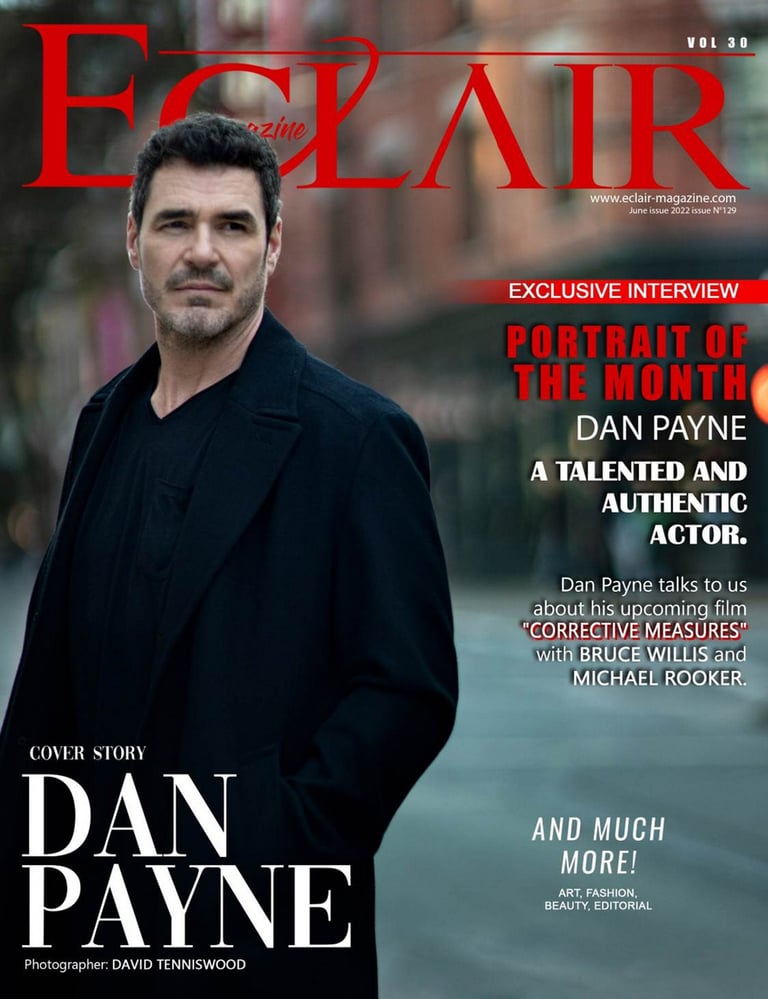

Dan Payne is a highly accomplished and genuine actor who has left his mark in various films, including notable roles in "Underworld: Awakening," "Stargate SGI," and "Smallville." Currently, he is set to grace the screen as one of the heroes in the upcoming film "Corrective Measures," alongside esteemed actors Bruce Willis and Michael Rooker.
However, Payne's contributions extend beyond his acting prowess. He also takes a sincere and heartfelt approach when discussing mental health, drawing from his own personal battle with depression. By openly sharing his experiences, Payne aims to provide support and guidance to those facing similar challenges. His willingness to tackle this important subject encourages conversations about mental health and promotes understanding and empathy among individuals who may be going through similar struggles.
Dan Payne's multifaceted career showcases his talent as an actor while demonstrating his commitment to raising awareness about mental health. His genuine approach and willingness to speak out make him not only a skilled performer but also an inspiring advocate for positive change.
Please note that the above description has been enhanced for clarity and coherence while preserving the original information provided.
Actor Dan Payne, known for his roles in films and series such as "Underworld: Awakening," "Stargate SGI," and "Smallville," is set to star as one of the heroes in the upcoming film "Corrective Measures." The film, written, produced, and directed by Sean O'Reilly, features Payne alongside Bruce Willis and Michael Rooker.
In addition to his acting career, Payne openly discusses mental health and shares his personal battle against depression, aiming to support and encourage others who may be facing similar challenges.
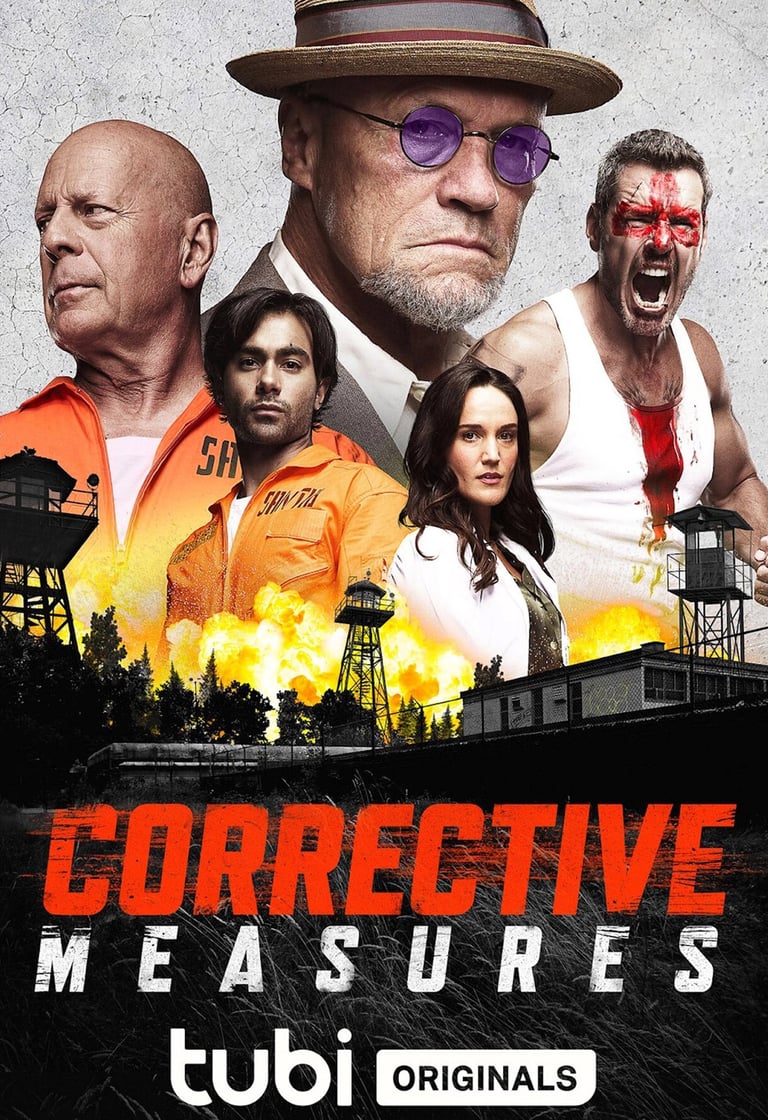

Portrait Of The Month ( June 2022)

INTERVIEW
Hello Dan Payne, thank you for granting us this interview.
1. Can you briefly introduce yourself for those who may not be familiar with you?
Hi! I'm Dan Payne, a proud husband and father of two incredible boys. I am a former professional athlete who has transitioned into acting, and I have a deep passion for my craft. I am constantly seeking new opportunities to learn and grow as an actor.
2. You're one of the main actors in the upcoming film "Corrective Measures" alongside Bruce Willis and Michael Rooker. Can you provide an overview of the film's storyline?
"Corrective Measures" is an action-packed science fiction thriller written, produced, and directed by Sean O'Reilly. The film is based on the graphic novel of the same name by Grant Chastain. It takes place in the world's most dangerous maximum-security prison, which houses the most treacherous criminals. As tensions escalate between the inmates and the staff, chaos ensues, and the prison descends into anarchy. Payback, my character, plays a significant role in causing this chaos and anarchy.
3. Could you share some insights about your character? Are you playing the hero or the villain? How did you prepare for this role?
I portray Walter Arthur Locke, also known as Payback, in the film. He is an ex-military family man who had been building a good life until tragedy strikes, leading him down a path of vengeance and turning him into a vengeful vigilante. I like to describe him as a badass anti-hero who is willing to do morally questionable things for what he believes is a just cause. Taking on this character was both exhilarating and nerve-wracking. Prior to filming, I dedicated myself to intense physical training with a personal trainer to ensure I was in the best shape possible. Additionally, I rehearsed scenes with my fellow actors to ensure I was fully prepared to make the most of the opportunity to share the screen with Bruce and Michael.
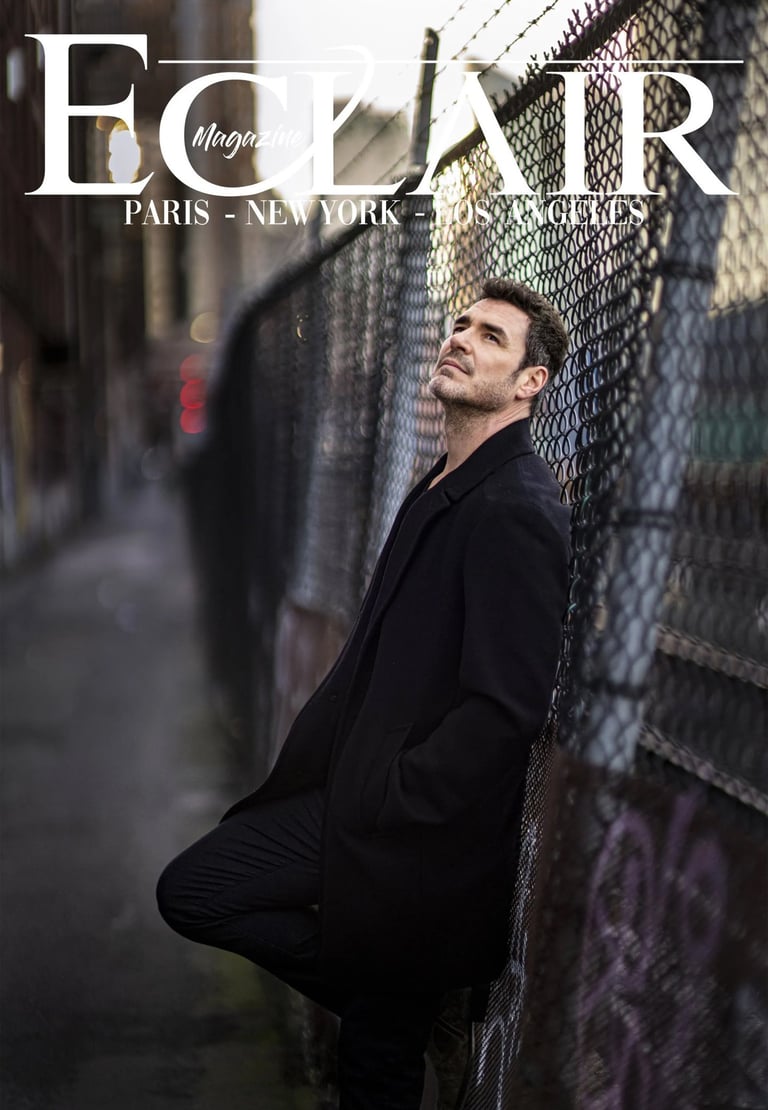

4. How was the experience of playing with the greats Bruce Willis and Michael Rooker?
It was an extraordinary and immensely enjoyable experience. Both Bruce Willis and Michael Rooker are iconic figures in the industry, with years of experience and exceptional talent. They have truly mastered their craft. Their confidence and ease on set and in front of the camera were inspiring to witness. Moreover, they generously shared their wealth of experience with the entire cast and crew, creating a memorable and fulfilling experience. Working with them was like a dream come true and an experience that will forever be cherished.
Where can fans tune in to watch the film?
The film premiered on Tubi on April 29th, 2022. Tubi is an excellent app that can be downloaded for free, providing access to a wide range of amazing content. "Corrective Measures" was one of their first original features.
5. Out of all the roles you have played in productions like Smallville, Stargate SG1/Atlantis, John Tucker Must Die, and Underworld: Awakening, which one has had the biggest impact on you? Do you have any ongoing projects?
It's genuinely difficult for me to choose a single role because each one has had a profound effect on me and reminded me of my love for this career and industry. I've had the opportunity to meet incredible people, portray memorable characters, and be part of highly acclaimed shows. I'm excited to continue this journey! Additionally, I'm thrilled to have joined the cast of a new show. While I can't reveal the details, I can say that its fourth season will be released in July this year.
6. During your childhood, you moved around a lot and lived in different countries. Was it a challenging experience for you to overcome?
A: I believe that moving around frequently was more of a blessing than a challenge. It helped me develop resilience and brought my family closer together. My brother and sister have been and continue to be my best friends.
Actor: Dan Payne I Photographer: David Tenniswood
7. Were you enthusiastic about each move?
I wouldn’t say I was always enthusiastic. Sometimes we were moving to a place like a smallish mining town and it would take a little longer to see what gift or learning the place had to offer. I think it also birthed my desire to travel and explore. I do love an adventure !
8- Why did you stop your sports career in volleyball? At what age did you want to become an actor? Was it accepted by those around you?
I feel like my sports career played out to its full conclusion. I might have been able to enjoy some innate athletic ability that I could rely on in my younger years but I quickly realised that to attain the goals I wanted, I would have to put in a great deal of effort and hard work to rise to my potential. That hard work took its toll and I retired satisfied with that journey. I still craved that audience response ‘demand of performance’ and found it performing shows with my brother on resort islands in Australia. I took that new found love to England and began my acting career. I’m very fortunate to have always had or been surrounded by supportive people. I think it's a key element to being successful in whatever you choose to do in life.
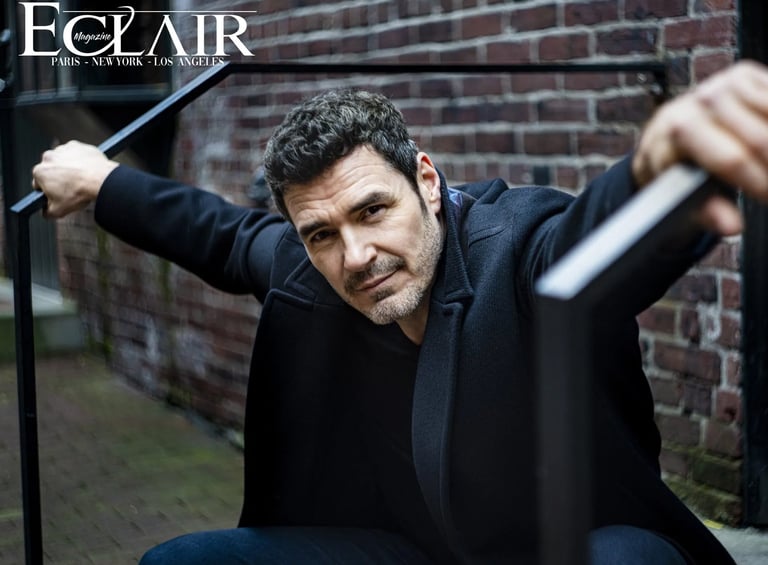

9- Were you enthusiastic about each move?
I wouldn't say I was always enthusiastic about every move. There were times when we relocated to places like small mining towns, and it would take a while to discover the unique gifts and lessons each place had to offer. However, those experiences also ignited my desire to travel and explore. I have a deep love for adventure.
10- Why did you stop your sports career in volleyball? At what age did you decide to become an actor? How did the people around you react to your decision?
I feel that my sports career naturally reached its conclusion. While I may have had some inherent athletic ability that benefited me in my younger years, I soon realized that achieving the goals I desired would require tremendous effort and hard work to reach my full potential. The toll of that hard work eventually led me to retire from sports, feeling satisfied with the journey I had undertaken. However, I still yearned for the response and demand for performance that an audience provides. This led me to perform shows with my brother on resort islands in Australia, where I discovered my newfound love for acting. I took that passion with me to England and embarked on my acting career. I consider myself very fortunate to have always had supportive people in my life who accepted and encouraged my choices. I believe that having a strong support system is crucial for success in any endeavor one chooses in life.
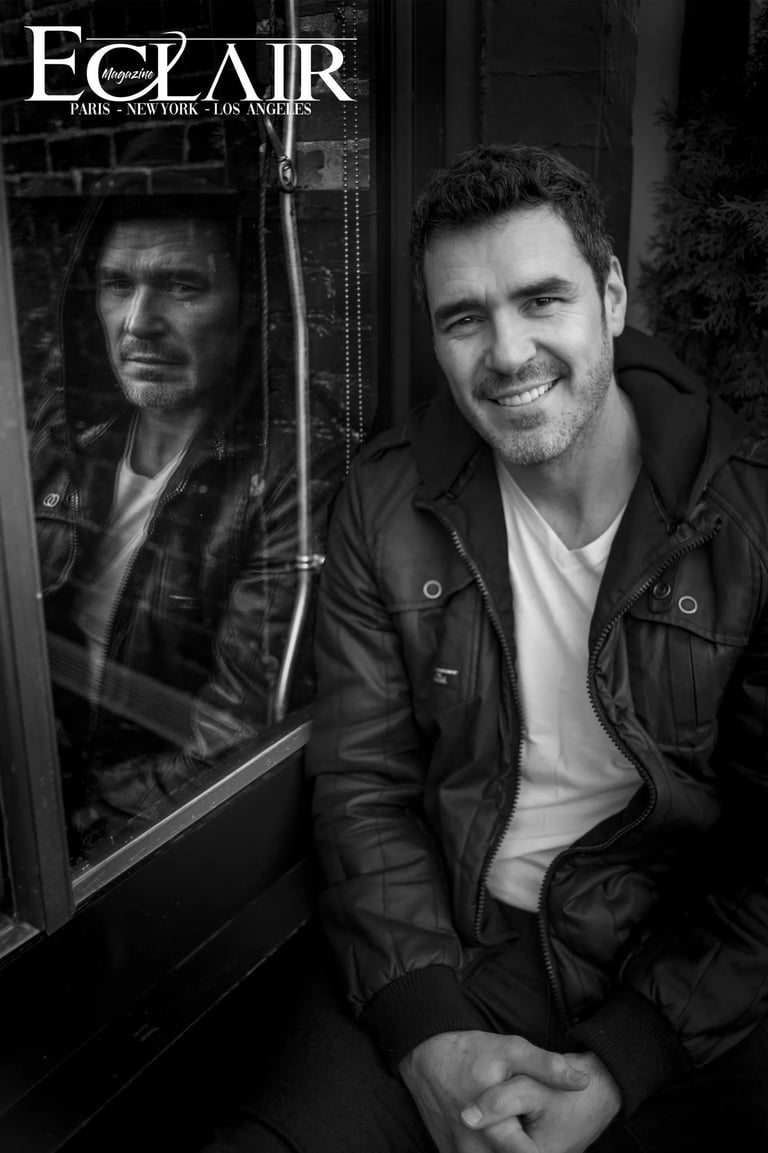

11. A subject that is close to our hearts is your courage to speak openly about depression, which is often considered taboo in society due to the emphasis on permanent positivity. Why is it important for you to address this issue?
Thank you for acknowledging that, but I must admit that courage wasn't always present. The stigma surrounding mental health prevented me from openly discussing my struggles with depression and led me to believe that I was broken or unworthy. For decades, I hid my true self, exhausting myself by wearing masks to conceal my secret. This nearly cost me everything. I don't want anyone else to reach that point, and if sharing my experiences and striving to be my authentic self can help someone avoid that, I will continue to speak out. My life changed completely when I took the chance to ask for help. I hope that through open conversation, more people will find the courage to seek assistance and avoid suffering in silence.
12. Do you think constant advocacy for positivity discourages people from discussing depression due to the fear of being judged or rejected by their friends?
I don't believe there is anything wrong with advocating for positivity; we need it in our lives. I am personally learning to reprogram myself to allow for more positivity. However, I think we need to create more space and understanding for those who struggle to find that positivity. By doing so, we can encourage conversation, connection, and greater awareness of others, ultimately reducing the judgment that often keeps people in the shadows. It all goes back to breaking the stigma surrounding mental health.
13. Suicide rates are alarmingly high, with thousands of deaths each year in France and a significant increase in the United States. How did you manage to overcome your depression? Did you receive help from specialists during this challenging period?
I reached a breaking point and was on the verge of becoming another statistic. In that moment, an intense fear gripped me, and the thought of my children kept me anchored to life. After a difficult breakdown, I took one final chance and shared my truth with my wife. Everything shifted from that point onward. She has been an incredible source of support. I have sought assistance from a naturopath to work on my body chemistry and supplements. I also engage in talk therapy with a therapist. Additionally, I have gathered valuable insights, skills, and advice from podcasts and kind individuals who have shared their experiences in managing depression. I am always eager to learn and grow in this journey.
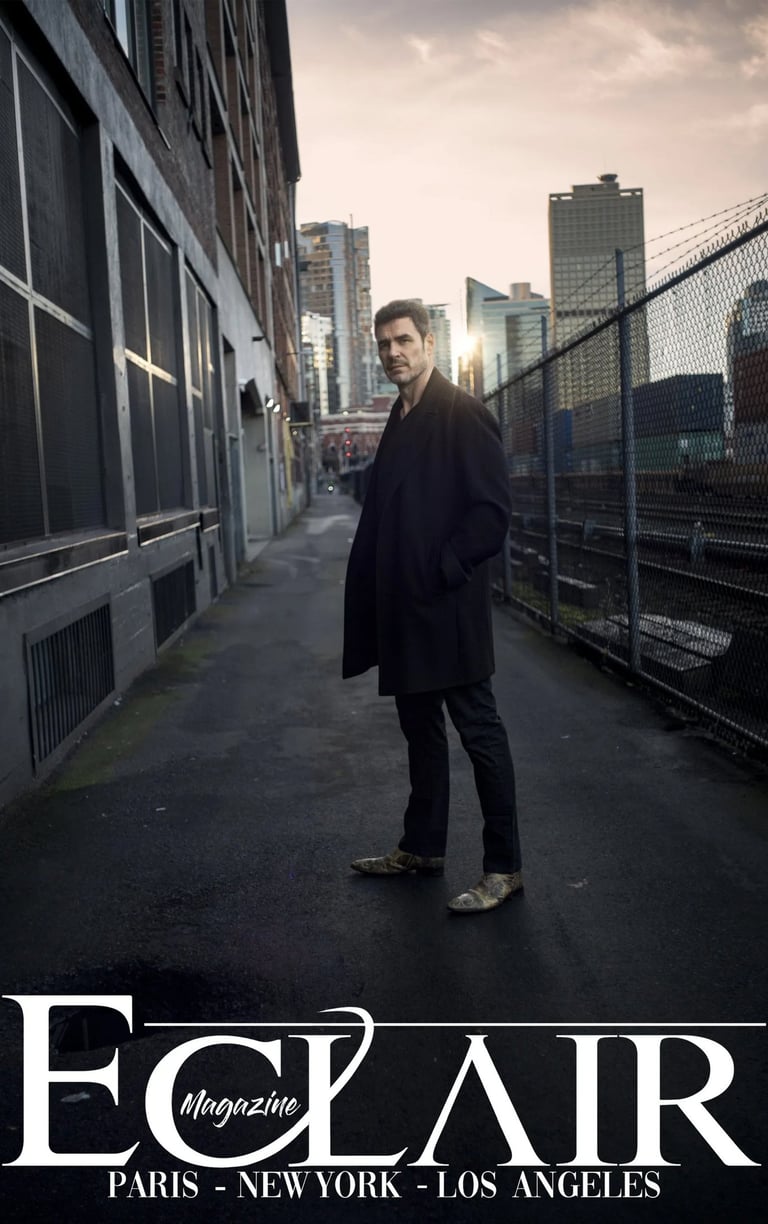

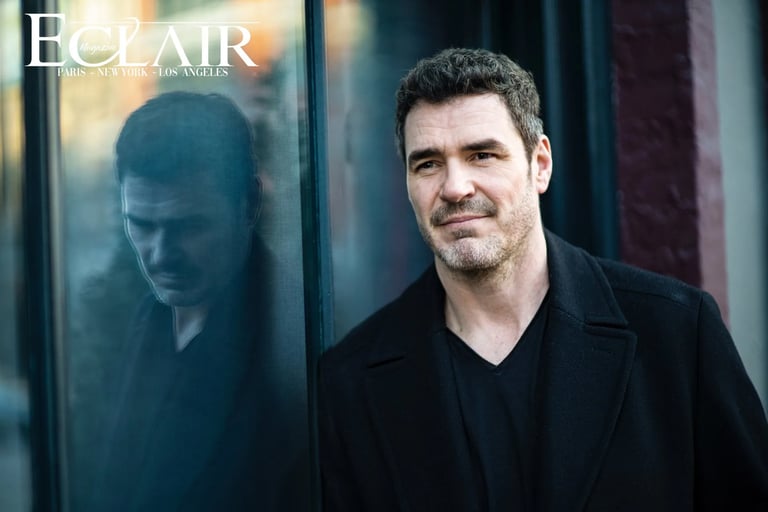

14. What would you say to those who feel misunderstood, isolated, and alone in a period of their life and are considering the worst?
It's a difficult question, but the one thing I want to emphasize is that you are not alone. I hope that everyone has someone they can confide in or share their struggles with, and I encourage them to take the incredibly difficult and scary step of reaching out to that person and letting them know they are not okay. Asking for help is okay, and it's important to remember that it's okay to not be okay. Taking that step to ask for help can be the beginning of a shift out of the darkness.
15. Artists, who tend to use the right side of their brain associated with creativity, are often more empathetic and sensitive, and they seem to be more prone to depression. What are your thoughts on this? Do you believe being an artist is a gift that predisposes individuals to depression?
I'm not entirely sure, but now that you mention it, I will definitely look into it and read more about it. I do believe that there is a wealth of creative resources within the empathetic and sensitive world, which, if maintained in some semblance of balance, can be a treasure trove for right-brained creative artists. However, it can also be a slippery slope, leading, at least in my experience, to darkness if not carefully managed.
16. Depression is not necessarily incompatible with a strong zest for life and a positive mood. What advice would you give to families to help them recognize early signs of depression in their loved ones?
It is true that even the happiest person, the life of the party with a big smile, may be hiding a much darker struggle with depression. This is another excellent question for which I don't have a definitive answer. I believe the best thing families can do is to be observant of any irregularities in behavior, reactions that seem out of character or disproportionate to the situation. In my case, those were the moments when my depression took over, and I couldn't manage the battle. Only those close to me would witness that side because I felt safe enough to let my guard down but still remain hidden. I also recall hesitating to answer simple questions like "Are you okay?" because I wanted to share my truth with a loved one but couldn't find the courage. I know that I wouldn't talk about my truth during those moments. It can be challenging to be with someone struggling with depression, but if you notice a moment when you feel connected to that person who may be struggling and they appear present and "okay," perhaps that could be an opportunity to let them know that they can talk about anything with you in a safe and judgment-free space. I wish I had a better answer, but I acknowledge that everyone's journey is unique, which makes it difficult to provide a one-size-fits-all response. I apologize for not having a more definitive answer, but I hope there is something valuable in my response.
17. If you could give one piece of advice to the kid you were, what would it be?
A: As I sit here, a tattoo on my foot comes to mind that says, "I am enough." I would like to tell my younger self, "No matter who you are with, where you are, or what you are striving for, remember that you are enough."
Quality, not quantity
We have made quality our habit. It’s not something that we just strive for – we live by this principle every day.
